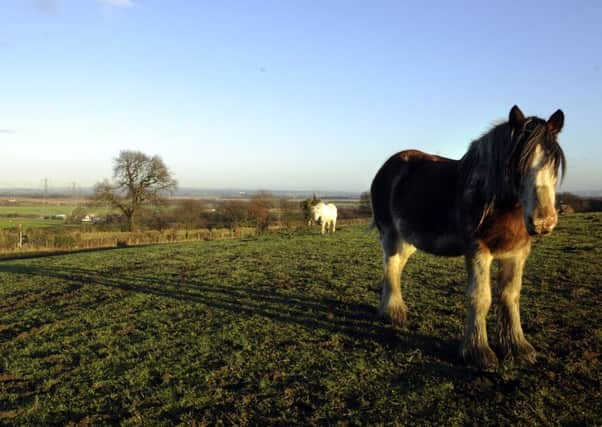Tenacious work needed to sort tenancy question


Until recently it was probably most frequently used to portray a meeting between lovers – conjuring up a secret tryst in the woods or a clandestine romantic rendezvous.
But for those who have been following the increasingly febrile debate on the Land Reform Bill, its use in legal terminology, meaning the transfer to another of a right, interest, or title, probably prevails.
Advertisement
Hide AdAdvertisement
Hide AdAnd, in this context, we might safely put to bed the lovey-dovey connotations – for here the word has taken on the darker undertones of an ugly weapon used in the barroom brawl to which the debate appears to be on the brink of degenerating.
The most recent brouhaha has blown up over the Scottish Government’s proposals to put an amendment into the agricultural holdings legislation on the assignation of farm tenancies.
In the original draft of the bill the plan was that, in order to give a tenant farmer who had decided to give up his lease some recognition for his stewardship – and some money in his pocket – he would be able to sell his tenancy on to another farmer, or back to his landlord.
It was proposed that if it went to another farmer, the tenancy would have to be converted into a fixed-term 35-year lease – a move designed to ensure that landowners’ property rights weren’t being contravened by indefinitely preventing them from regaining vacant possession of their land.
At the time, however, the proposals caused a bit of an uproar – with the tenant’s body claiming that 35 years wasn’t long enough, while landowners complained it was too long. So far, so predictable.
But, as creating new opportunities for new entrants and allowing those at the bottom of the farming ladder to take a step up was central to the reforms, an amendment was raised which proposed that, in the particular case where a 91 Act secure tenancy was transferred to a new entrant or a
so-called “progressing” farmer, it could remain a secure tenancy.
Under the proposal, the sum which could be obtained by the retiring tenant would be set by a valuer appointed by the tenant farmer commissioner, and, depending on circumstances, could range from being insignificant up to almost a quarter of the value of the land.
Advertisement
Hide AdAdvertisement
Hide AdHowever, the landowner would still be given the opportunity to match this payment, should he wish to regain vacant possession.
I suspect that there will be very few instances in which such a situation actually arises – and probably far fewer than the fuss would justify.
Since the proposal was announced, landowners have been jumping up and down and writing to government ministers – and the press – decrying it as a “discriminatory measure” driven by those with a desire for the Bill to be made more radical. They also claim that the move constitutes a fundamental breach of property rights, adding that it could destroy confidence and have a negative impact on the entire let-land sector.
In the other corner, the Scottish Tenant Farmers Association viewed the proposal as “the missing piece of the tenancy jigsaw” which recognised the landlord’s and tenant’s property interests – while replacing some missing rungs on the farming ladder.
Claiming that scaremongering was afoot, they said that the idea was being deliberately misinterpreted to undermine the proposal.
Whether you believe we have a sneaky attempt to change the rules – or a deliberate attempt to discredit a good idea with disingenuous spin – will probably depend upon which side of the tenant/landlord fence you sit.
But the far bigger worry is that the cohesive package put forward in the agricultural holdings review – pointedly described as “not being a pick-and-mix” plan – is degenerating into exactly the sort of fragmented, piecemeal approach which was so strongly warned against.
With so many amendments being put forward before the parliamentary committee begins to scrutinise stage two of the bill later this week, the lack of detail and the number of loose ends only highlights that many of the hard decisions on land reform are yet to be made.
